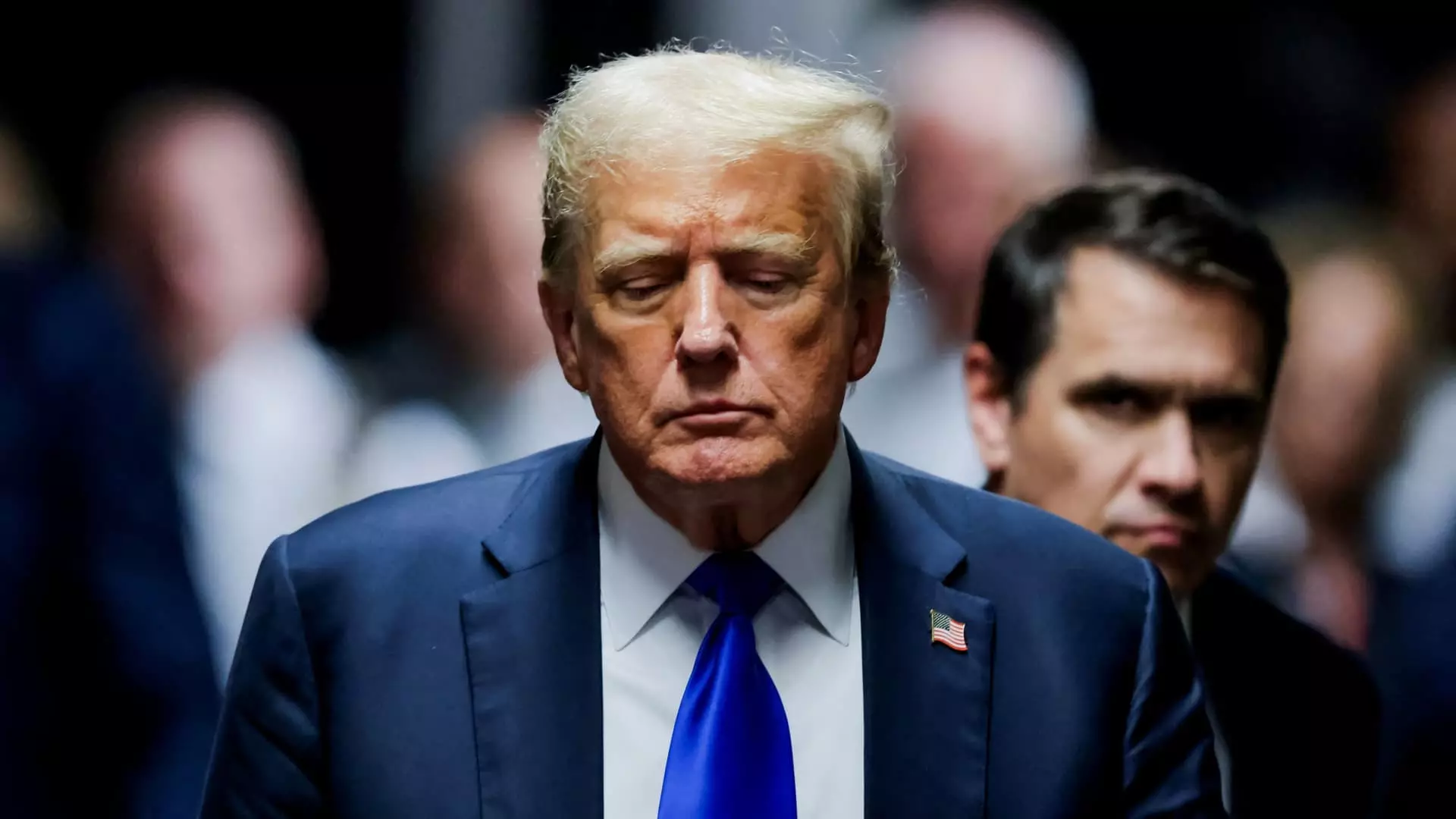The saga surrounding President-elect Donald Trump’s criminal hush money case continues to unfold, embroiling him in legal ramifications that challenge his political future. On a recent Monday, Trump faced a setback in a Manhattan court as Judge Juan Merchan dismissed claims of presidential immunity that Trump’s legal team argued should quash the charges against him. This decision highlights the intricate interplay between legal norms and the perception of presidential power, particularly as it pertains to judicial accountability.
Judge Merchan’s ruling emphasized that the prosecution’s sources of evidence, which included testimonies from former White House staff, were not sufficient grounds for dismissing the case. Trump’s attorneys contended that his actions as president afforded him a certain level of immunity from criminal liability. However, Judge Merchan countered this assertion by clarifying that the allegations of falsifying business records are distinctly personal in nature and do not constitute an official presidential act, regardless of when they occurred.
The fact that Merchan has yet to address other arguments for dismissal leaves openings for Trump’s defense team. These claims hinge on the notion of a president’s immunity during his term, a narrative that has gained traction since the U.S. Supreme Court’s July ruling. However, the Judge’s reference to the “outer perimeter” of presidential authority raises important questions about the limitations of such immunity, particularly when alleged misconduct involves activities that lie outside the official responsibilities of the presidency.
Trump, who was found guilty of 34 felony counts of falsifying business records, is embroiled in a case stemming from a $130,000 payment made by his former attorney, Michael Cohen, to adult film actress Stormy Daniels. This payment, made just before the 2016 presidential election, aimed to prevent Daniels from disclosing an alleged extramarital affair involving Trump—a claim he has fervently denied. Such context complicates the narrative of presidential immunity, as the allegations relate to actions taken before Trump’s presidential duties began, yet they raised substantial legal questions during his tenure in office.
The implications of this case extend beyond courtroom proceedings. Trump’s legal predicament could affect his political maneuvering and the broader Republican party dynamics as he seeks support for a potential second non-consecutive presidential run. The successful navigation of his legal challenges is paramount, not just for maintaining his personal reputation, but for the implications it holds for his base and the party’s cohesiveness moving forward.
A pressing concern is the potential timeline for sentencing. The Manhattan District Attorney’s Office hinted at delaying sentencing until after Trump’s anticipated exit from the presidency. This raises ethical and legal questions about whether a sitting president should be subjected to criminal penalties while in office. Trump’s attorneys requested postponements until all appeals are exhausted, suggesting a prolonged battle that could extend well into his presidential transition—or possibly a second term.
Trump’s assertion that these legal actions constitute a “witch hunt” frames the narrative in a manner that mobilizes his support base. His spokesperson’s statement labeling Judge Merchan as “deeply conflicted” underlines the charged atmosphere surrounding this case, where legal discourse often overlaps with political rhetoric. The phrase “witch hunt” itself has become a catchphrase among Trump’s supporters, symbolizing a perceived vendetta against the former president and a broader fight against establishment accountability.
Ultimately, the crossroads of law and politics present a complex landscape for Trump. With the U.S. judicial system increasingly scrutinizing actions taken at the highest levels of government, the necessity for clear delineations between official conduct and personal accountability becomes paramount. As the legal battles unfold, the ramifications for Trump’s political aspirations and the legal precedents set against the backdrop of his presidency will echo throughout history. The fight for judicial clarity may ultimately shape perceptions of presidential authority and accountability for generations to come. The outcome of this hush money case may not only determine Trump’s immediate future but could also redefine the interplay between presidential power and personal conduct in American politics.


Leave a Reply